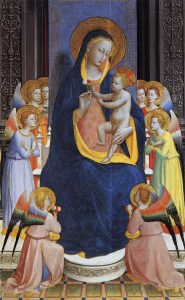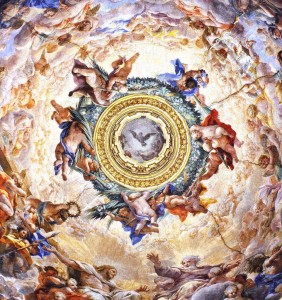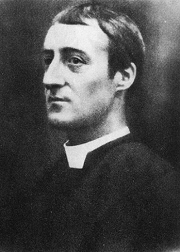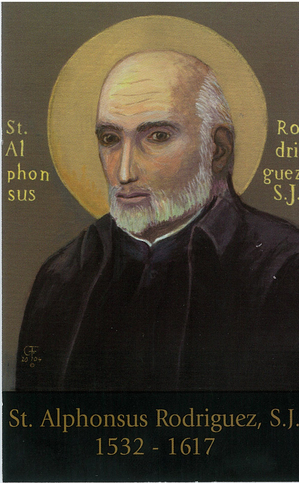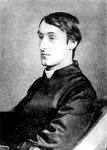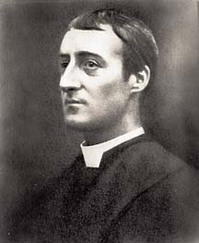Today closes the Octave of the Assumption, the apt way to prolong the wonderful
 solemnity of the Blessed Mother’s Assumption to heaven. In his October 11, 1954 encyclical, Ad Caeli Reginam, Pope Pius XII gave the Church the feast of the Queenship of the Blessed Virgin Mary.
solemnity of the Blessed Mother’s Assumption to heaven. In his October 11, 1954 encyclical, Ad Caeli Reginam, Pope Pius XII gave the Church the feast of the Queenship of the Blessed Virgin Mary.
I think the best way to think about today feast is to read the words of the Jesuit poet Father Gerard Manley Hopkins in “The Blessed Virgin compared to the Air we Breathe.” While it was composed well before Pope Pius’ declaration, Hopkins captures perfectly our Catholic belief in Mary.
WILD air, world-mothering air,
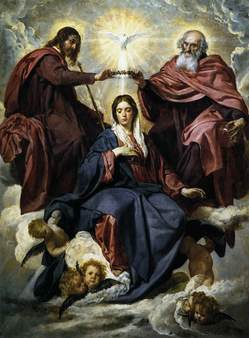 Nestling me everywhere,
Nestling me everywhere,
That each eyelash or hair
Girdles; goes home betwixt
The fleeciest, frailest-flixed
Snowflake; that ‘s fairly mixed
With, riddles, and is rife
In every least thing’s life;
This needful, never spent,
And nursing element;
My more than meat and drink,
My meal at every wink;
This air, which, by life’s law,
My lung must draw and draw
Now but to breathe its praise,
Minds me in many ways
Of her who not only
Gave God’s infinity
Dwindled to infancy
Welcome in womb and breast,
Birth, milk, and all the rest
But mothers each new grace
That does now reach our race–
Mary Immaculate,
Merely a woman, yet
Whose presence, power is
Great as no goddess’s
Was deemèd, dreamèd; who
This one work has to do–
Let all God’s glory through,
God’s glory which would go
Through her and from her flow
Off, and no way but so.
I say that we are wound
With mercy round and round
As if with air: the same
Is Mary, more by name.
She, wild web, wondrous robe,
Mantles the guilty globe,
Since God has let dispense
Her prayers his providence:
Nay, more than almoner,
The sweet alms’ self is her
And men are meant to share
Her life as life does air.
If I have understood,
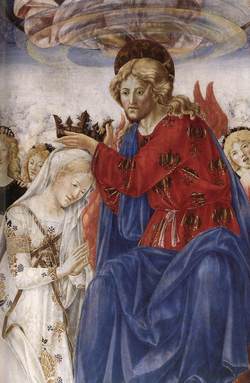 She holds high motherhood
She holds high motherhood
Towards all our ghostly good
And plays in grace her part
About man’s beating heart,
Laying, like air’s fine flood,
The deathdance in his blood;
Yet no part but what will
Be Christ our Saviour still.
Of her flesh he took flesh:
He does take fresh and fresh,
Though much the mystery how,
Not flesh but spirit now
And makes, O marvellous!
New Nazareths in us,
Where she shall yet conceive
Him, morning, noon, and eve;
New Bethlems, and he born
There, evening, noon, and morn–
Bethlem or Nazareth,
Men here may draw like breath
More Christ and baffle death;
Who, born so, comes to be
New self and nobler me
In each one and each one
More makes, when all is done,
Both God’s and Mary’s Son.
Again, look overhead
How air is azurèd;
O how! nay do but stand
Where you can lift your hand
Skywards: rich, rich it laps
Round the four fingergaps.
Yet such a sapphire-shot,
Charged, steepèd sky will not
Stain light. Yea, mark you this:
It does no prejudice.
The glass-blue days are those
When every colour glows,
Each shape and shadow shows.
Blue be it: this blue heaven
The seven or seven times seven
Hued sunbeam will transmit
Perfect, not alter it.
Or if there does some soft,
On things aloof, aloft,
Bloom breathe, that one breath more
Earth is the fairer for.
Whereas did air not make
This bath of blue and slake
His fire, the sun would shake,
A blear and blinding ball
With blackness bound, and all
The thick stars round him roll
Flashing like flecks of coal,
Quartz-fret, or sparks of salt,
In grimy vasty vault.
So God was god of old:
A mother came to mould
Those limbs like ours which are
What must make our daystar
Much dearer to mankind;
Whose glory bare would blind
Or less would win man’s mind.
Through her we may see him
Made sweeter, not made dim,
And her hand leaves his light
Sifted to suit our sight.
Be thou then, O thou dear
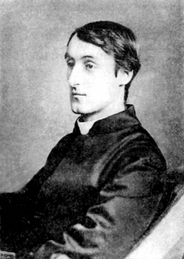 Mother, my atmosphere;
Mother, my atmosphere;
My happier world, wherein
To wend and meet no sin;
Above me, round me lie
Fronting my froward eye
With sweet and scarless sky;
Stir in my ears, speak there
Of God’s love, O live air,
Of patience, penance, prayer:
World-mothering air, air wild,
Wound with thee, in thee isled,
Fold home, fast fold thy child.
The Poems of Gerard Manley Hopkins, 1918
 Among many saints and blesseds liturgically honored today (e.g., Saint Wolfgang & Blessed Theodore Romzha), we have the feast of the Jesuit Saint Alphonse Rodriguez, known for his extraordinary holiness that shone out of his ordinary work as the doorkeeper of a Jesuit school. Tremendous opportunities for holiness in the ordinary.
Among many saints and blesseds liturgically honored today (e.g., Saint Wolfgang & Blessed Theodore Romzha), we have the feast of the Jesuit Saint Alphonse Rodriguez, known for his extraordinary holiness that shone out of his ordinary work as the doorkeeper of a Jesuit school. Tremendous opportunities for holiness in the ordinary.